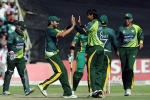- Web
- Humsa
- Videos
- Forum
- Q2A


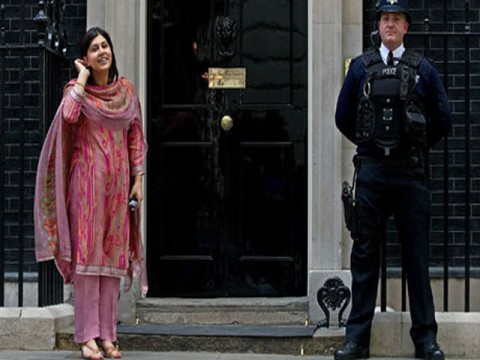
Baroness Warsi may have opted for shalwar khameez for her first meeting of the cabinet in May 2010, but for many Muslim women, the struggle is to downplay ethnic or religious difference in order to find acceptance - and employment. A recent parliamentary report found that Muslim women often feel pressured to change their appearance or anglicise their name in order to access employment.
Often, it is the “triple paralysis” of being a woman, migrant, or perceived as such, and Muslim. While in some cases, the barriers are cultural, linguistic or educational, research suggests that 25% of the ethnic minority unemployment rate for both men and women could be explained by prejudice and racial discrimination.
South Asian Muslim women have the highest rate of unemployment in terms of both religion and ethnicity in the UK. Many are highly educated, ambitious women like Shazba, a speech therapist and single mother, who struggles to understand the consistent rejections. She has been unemployed for five years despite a masters qualification and extensive voluntary experience: “I’ve been through numerous interviews for my first job. Needless to say, I feel I’m not getting the job as employers see I wear hijab and look for reasons to turn me down.” When I push her on how exactly she can be sure her headscarf is the problem, given high rates of unemployment more broadly, she responds: “It’s body language, tonality - I once walked into an interview and the interviewer’s face just crashed.”
Others encounter difficulties within the workplace itself, where requests for minor adaptations are met with resistance. Reema, a 34-year-old obstetrician, has to remove her hijab in order to perform surgery. She explains that her London hospital trust has been unwilling to consider small alterations to the scrubs uniform worn in surgery, despite the possibility of ensuring sterility standards. In her experience, “when young doctors in foundation stages see the problem with hijab in theatres, they think of choosing specialities without surgery, even though they are interested in surgical specialities.” This self-selecting out of certain professions is one of the barriers to employment noted by the report.
Others include assumptions about Muslim women and how their religious identity is likely to impact on their work. A recurring theme was of women feeling “essentialised” - Muslim journalists consistently asked to cover “Muslim” stories, Muslim solicitors hired as a means of accessing certain communities, or a hospice worker whose conversations were routinely directed at her faith. From questions about pregnancy plans through to being asked, “We have a lot of gay staff here - is that going to be a problem for you?”, many women felt their identity was reduced to their scarf and the assumptions people made about it.
For women who had to undergo a traineeship, the pressure of what one’s supervisor might think made them vulnerable to prejudice. Some were advised to change the style or colour of their scarf in order to appear more “client friendly”, others were asked if they intended to keep wearing it, a question they interpreted as meaning it could work against their application. A trainee solicitor at a leading international law firm was told she was “sheltered” and “deferent”, something her employers put down her “background”. She eventually opted to remove her scarf. Fiyaz Mughal, director of the Tell Mama (Measuring Anti-Muslim Attacks) campaign says: “These are not just isolated problems. There are strong perceptions in Muslim communities that employment discrimination is rife.”
According to the report, the impact on women’s self-confidence is significant, something Mughal corroborates: “This causes a lack of confidence … as they think about where their future lies.” Such concerns are not unfounded. Consistent workplace inactivity in younger women can lead to difficulties in finding a job later in life. This is all the more worrying given that Pakistani and Bangladeshi families experience extremely high poverty rates and in light of the fact BME concentration in the public sector means they are more likely to be affected by cuts.
The portrayal of Muslim women in the media as passive victims, or as problems, undoubtedly renders them less desirable to prospective employers. Barrister Sultana Tafadar explained that some chambers were concerned that women in headscarves might be perceived as less competent and more judgmental of clients. Women who work in the service sector were made to feel they’d struggle to fit into the team. But it would be a mistake to assume this sort of subtle discrimination is limited to women. Ed Husain, author of the Islamist, revealed that he changed his name because he didn’t feel comfortable with Mohammed and in 2009, researchers uncovered widespread racial discrimination against workers with African and Asian names, among whom unemployment rates remain consistently higher than average.
Muslim women stand at the intersection of race, gender and religious difference, which significantly increases their likelihood of suffering prejudice. But the focus on Muslim women shouldn’t serve to further essentialise their identity - they merely represent the sharp end of a stick which indicates the persistence of sexism, racism and religious discrimination in broader society and their impact on people’s life choices.
 COTABATO: A powerful bomb exploded at the centre of the southern Philippines city of Cotabato on Monday, killing five people, police said.
The explosive device was placed in a vehicle -- either a motorcycle or a van -- parked near a hospital and a school, city police chief Senior Superintendent Rolen Balquin said.
"The explosion was on a ver..... Read more
COTABATO: A powerful bomb exploded at the centre of the southern Philippines city of Cotabato on Monday, killing five people, police said.
The explosive device was placed in a vehicle -- either a motorcycle or a van -- parked near a hospital and a school, city police chief Senior Superintendent Rolen Balquin said.
"The explosion was on a ver..... Read more
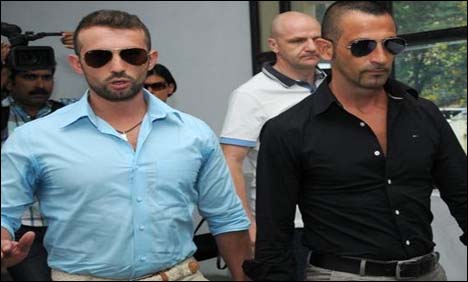 Italy said two marines on trial for murder in India would return to the country by Friday, in a stunning turnaround after Rome earlier unleashed a diplomatic furore by saying they would not go back.
The two, Massimiliano Latorre and Salvatore Girone, had been granted a special leave last month by an Indian court to return to Italy to vote in elections ..... Read more
Italy said two marines on trial for murder in India would return to the country by Friday, in a stunning turnaround after Rome earlier unleashed a diplomatic furore by saying they would not go back.
The two, Massimiliano Latorre and Salvatore Girone, had been granted a special leave last month by an Indian court to return to Italy to vote in elections ..... Read more
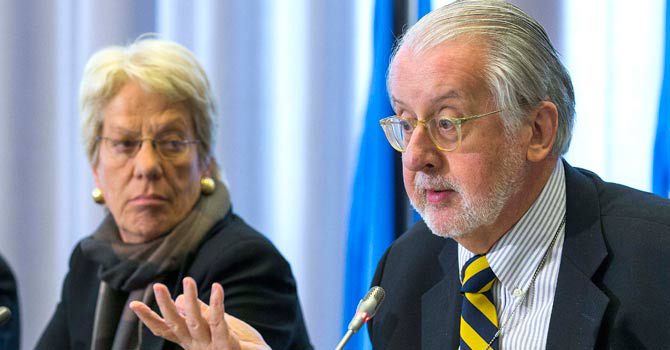 The Syrian regime appears to be using local militias known as Popular Committees to carry out sometimes sectarian mass-killings in Syria, a UN inquiry team said on Monday.
“In a disturbing and dangerous trend, mass killings allegedly perpetrated by Popular Committees have at times taken on sectarian overtones,” the UN commission of inquiry, ..... Read more
The Syrian regime appears to be using local militias known as Popular Committees to carry out sometimes sectarian mass-killings in Syria, a UN inquiry team said on Monday.
“In a disturbing and dangerous trend, mass killings allegedly perpetrated by Popular Committees have at times taken on sectarian overtones,” the UN commission of inquiry, ..... Read more






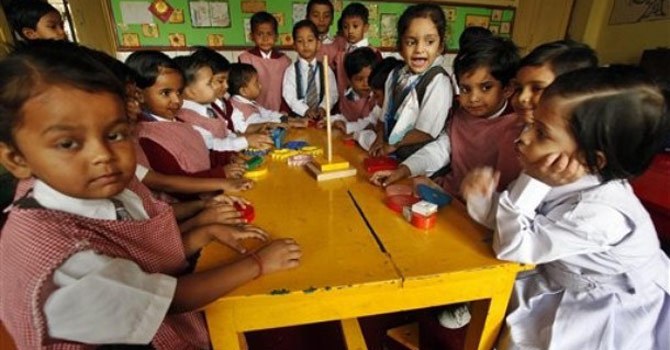
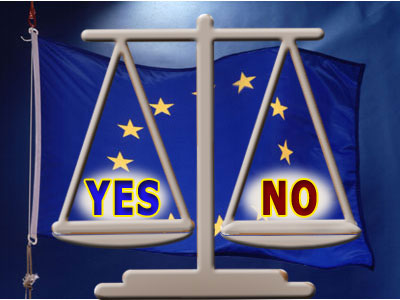




 Clean Chit (Faisal Raza Abidi ...
Clean Chit (Faisal Raza Abidi ...  Akhir Kiyon - 16th December 2...
Akhir Kiyon - 16th December 2...  To The Point - 16th December ...
To The Point - 16th December ...  Capital Talk â
Capital Talk â  Kal Tak - 16th December 2013
Kal Tak - 16th December 2013  Bay Laag - 16th December 2013
Bay Laag - 16th December 2013  Kharra Sach - 16th December 2...
Kharra Sach - 16th December 2...  Awaam - 15th December 2013
Awaam - 15th December 2013 





 Gold Miner
Gold Miner  Superbike GP
Superbike GP  Whipsaw Fighter
Whipsaw Fighter  PacMan
PacMan 

